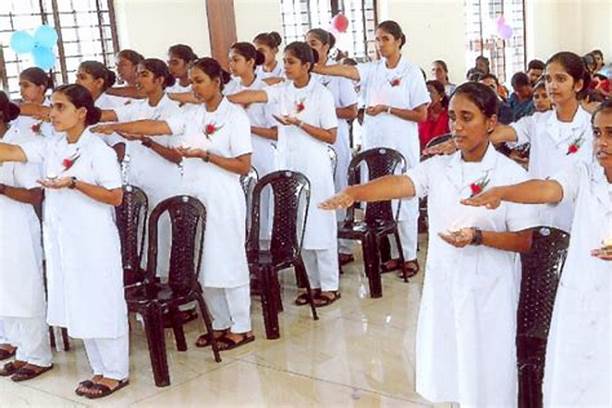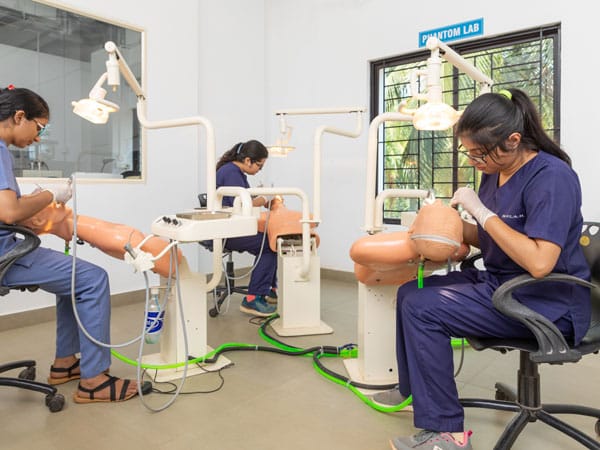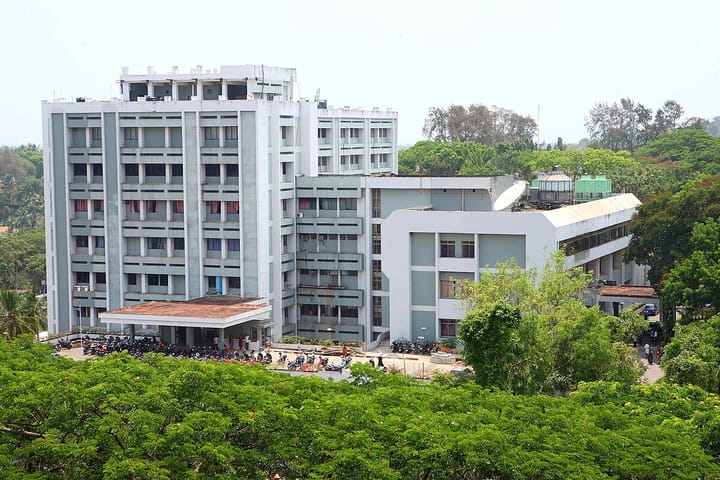Kerala Nurses
Kerala's nursing phenomenon represents one of the most successful examples of human capital development and international integration in the modern era. From humble beginnings, Kerala has transformed itself into a global nursing powerhouse.

Kerala's Nursing Excellence: From God's Own Country to Global Healthcare Heroes
Introduction
Kerala has earned international recognition not just for its natural beauty and high human development indices, but also for producing some of the world's most skilled and compassionate nurses. The state has become synonymous with nursing excellence, contributing significantly to healthcare systems across the globe. Kerala nurses have established themselves as the backbone of healthcare services in numerous countries, from the oil-rich nations of the Gulf to the developed healthcare systems of the United States, United Kingdom, Australia, and beyond.
This remarkable phenomenon represents more than just professional migration; it reflects Kerala's unique social, educational, and cultural ecosystem that has nurtured a generation of healthcare professionals who combine technical competence with compassionate care. The story of Kerala nurses is one of individual achievement, family sacrifice, community pride, and global recognition that has transformed both the lives of countless individuals and the reputation of an entire state.
The Scale of Kerala's Nursing Contribution
Global Presence and Numbers
The impact of Kerala nurses on global healthcare is staggering in its scope and significance. India is a major source of nurses for the global healthcare sector, with approximately 640,000 Indian nurses working abroad, with Kerala contributing a disproportionately large share relative to its population size. The state's nurses can be found in virtually every corner of the world, from major urban hospitals to remote healthcare facilities, serving diverse populations and healthcare systems.
Recent Migration Trends
The post-COVID era has witnessed unprecedented demand for Kerala nurses globally. A whole world of opportunities has opened up before the nurses from Kerala in the post-Covid era. A lot many of them are learning new languages and flying abroad. While they used to migrate to the Gulf earlier, an increasing number of nurses are now preferring European and American countries. Recent data indicates that approximately 25,000 Kerala nurses migrated to the United States and Europe in 2022 alone, representing a significant shift in migration patterns and destinations.
Geographic Distribution
Kerala nurses have established significant presences across multiple continents. In the Gulf Cooperation Council countries, they form the backbone of healthcare systems, with hundreds of thousands serving in Saudi Arabia, UAE, Kuwait, Qatar, Oman, and Bahrain. In Western countries, growing numbers are making their mark in the United States, United Kingdom, Australia, Canada, Ireland, Germany, and other European nations. Additionally, many serve in other developing countries across Asia, Africa, and Latin America, often in challenging environments where their skills and dedication make crucial differences.
Nursing Education Infrastructure in Kerala
Educational Excellence and Standards
Kerala's nursing education system has evolved to meet international standards while maintaining affordability and accessibility. The state operates a comprehensive network of nursing institutions ranging from government colleges to prestigious private institutions. Joining the top Nursing colleges in Kerala might be expensive as most colleges have tuition fees in between INR 2-3 lakh and the colleges are Amrita College of Nursing, Baby Memorial College of Nursing, KIMS College of Nursing, Lourdes College of Nursing, and many more.
Top Nursing Institutions
Kerala hosts several nationally and internationally recognized nursing institutions. The top 10 private nursing colleges in Kerala are Amrita College of Nursing, Lourdes College of Nursing, and Jubilee Mission College of Nursing. These institutions have established reputations for producing high-quality graduates who excel in both domestic and international healthcare settings.
Government Nursing Colleges:
- Government College of Nursing, Thiruvananthapuram
- Government College of Nursing, Kottayam
- Government College of Nursing, Kozhikode
- Rajiv Gandhi College of Nursing, Thrissur
Private Nursing Institutions:
- Amrita College of Nursing, Kochi
- Lourdes College of Nursing, Ernakulam
- Baby Memorial College of Nursing, Kozhikode
- KIMS College of Nursing, Thiruvananthapuram
- Jubilee Mission College of Nursing, Thrissur
Curriculum and Training Standards
Kerala's nursing education emphasizes both theoretical knowledge and practical clinical experience. To qualify for Kerala BSc Nursing Admission 2025, students must have completed their 10+2 from the Kerala board or any other examination recognized by Kerala University of Health Sciences, Thrissur, with an aggregate of at least 50% marks in Physics, Chemistry, ensuring students have strong scientific foundations.
The curriculum includes comprehensive coverage of nursing fundamentals, medical-surgical nursing, community health nursing, psychiatric nursing, pediatric nursing, obstetric and gynecological nursing, nursing administration and research, and clinical rotations in various hospital departments.
Hospital-Based Training Programs
Many major hospitals in Kerala operate their own nursing schools and training programs, providing students with direct exposure to clinical practice. These hospital-based programs include those at:
- Medical College Hospitals (Thiruvananthapuram, Kottayam, Kozhikode, Thrissur)
- Private hospital chains (Aster Medcity, Apollo, Amrita)
- Specialty hospitals focusing on cardiac care, cancer treatment, and other specializations
- Community hospitals providing rural and primary healthcare experience
International Recognition and Acceptance
Professional Competency Recognition
Kerala nurses have earned exceptional recognition for their professional competency across international healthcare systems. Their technical skills, combined with strong English proficiency and cultural adaptability, have made them highly sought after by healthcare institutions worldwide. International healthcare recruiters often specifically seek nurses from Kerala, recognizing their comprehensive training and proven track record.
Language Advantages
One of Kerala's unique advantages in global nursing migration is the state's emphasis on English education and multilingual capabilities. Many Kerala nurses are fluent in English, Hindi, and Malayalam, with growing numbers learning additional languages like Arabic, German, or French to expand their international opportunities. This linguistic versatility has opened doors to diverse international markets and enhanced their professional adaptability.
Cultural Competence
Kerala nurses demonstrate exceptional cultural competence, adapting to diverse patient populations and healthcare environments. Their ability to provide culturally sensitive care while maintaining professional standards has earned them respect and preference among international employers. This cultural adaptability stems from Kerala's own diverse social fabric and the nursing education system's emphasis on holistic, patient-centered care.
Salary Patterns and Economic Impact
Domestic Salary Structures
Within Kerala and India, nursing salaries vary significantly based on experience, specialization, and employment sector. Entry-level nurses in government hospitals typically earn between ₹25,000 to ₹40,000 per month, while experienced nurses in private hospitals may earn ₹50,000 to ₹80,000 monthly. Specialized nurses in critical care, operation theaters, or administrative roles command higher salaries.
International Earning Potential
The economic incentive for international migration remains substantial. Abroad: Salary can range widely, from around Rs. 75,000 to Rs. 2 lakh or more per month, depending on the country, employer, and level of experience. These figures represent significant improvements over domestic earning potential, though they must be considered alongside higher living costs in developed countries.
Regional Salary Variations:
- Gulf Countries: $800-2,500 per month (tax-free)
- United States: $4,000-8,000 per month (before taxes)
- United Kingdom: $3,500-6,000 per month (before taxes)
- Australia: $4,500-7,500 per month (before taxes)
- Germany: $3,000-5,500 per month (before taxes)
Economic Impact on Kerala
The economic impact of Kerala nurses' international careers extends far beyond individual families. Remittances from nurses working abroad contribute significantly to Kerala's economy, supporting not only immediate families but also local businesses, real estate markets, and community development projects. Many nurses use their international earnings to invest in Kerala's healthcare sector, starting their own nursing homes, diagnostic centers, or training institutions.
Migration Intentions and Patterns
Student Migration Aspirations
Research indicates strong migration intentions among nursing students in Kerala. The study used a cross-sectional survey design to collect data from 1408 nursing students from across four states of India namely, Karnataka, Kerala, Maharashtra and Rajasthan using a google survey form. The major finding of the study was that 54% of the respondents intended to migrate overseas. This reflects the global outlook and career aspirations that characterize Kerala's nursing education environment.
Destination Preferences
Migration patterns have evolved significantly over the decades. While Gulf countries traditionally attracted the largest numbers of Kerala nurses, recent trends show increasing interest in Western countries offering better long-term prospects, including permanent residency opportunities, advanced career development options, higher educational opportunities for children, and comprehensive social security systems.
Migration Support Systems
Kerala has developed robust support systems for nursing migration, including specialized coaching centers for international nursing examinations (NCLEX-RN, OET, IELTS), immigration consultancy services specifically for healthcare professionals, networking organizations connecting nurses across different countries, and financial institutions offering education and migration loans.
Professional Recognition and Community Respect
Social Status and Respect
Nursing has achieved remarkable social recognition in Kerala, transforming from a profession with limited social acceptance to one of the most respected careers. This transformation reflects broader changes in Kerala's social values, economic priorities, and global awareness. Families take pride in having nurses who serve internationally, viewing them as ambassadors of Kerala's healthcare excellence.
Community Role Models
Many successful Kerala nurses have become community role models, inspiring younger generations to pursue nursing careers. Their success stories, shared through community networks, media coverage, and educational institutions, help counter any remaining social stigma and promote nursing as a prestigious profession.
Professional Organizations
Kerala nurses have established strong professional organizations both domestically and internationally. These organizations provide professional development opportunities, advocacy for nurses' rights and interests, networking and mentorship programs, and support for new nurses entering international markets.
Government Support and Policy Framework
State Government Initiatives
The Kerala government has implemented various programs to support nursing education and international migration, including scholarships for nursing students from economically disadvantaged backgrounds, skill development programs aligned with international standards, support for nursing institutions to achieve international accreditation, and coordination with recruitment agencies for transparent, ethical migration processes.
Regulatory Framework
The Kerala State Nurses and Midwives Council oversees nursing education standards, professional registration, and ethical practices. The council works to ensure that Kerala's nursing education meets both national and international standards, facilitating smooth professional transitions for nurses seeking international opportunities.
International Cooperation
The state government has established cooperation agreements with various countries to facilitate legitimate nursing migration while protecting workers' rights. These agreements include mutual recognition of nursing qualifications, standardized recruitment processes, and protection mechanisms for overseas workers.
Current Challenges and Issues
Nursing Shortage at Home
Kerala's success in producing internationally competitive nurses has created a paradoxical challenge: domestic nursing shortages. Many of Kerala's best-trained nurses migrate internationally, creating staffing challenges in local healthcare institutions. This brain drain affects both public and private healthcare facilities, requiring ongoing attention to ensure adequate domestic healthcare staffing.
Education Cost Barriers
While nursing education in Kerala is generally more affordable than in many other regions, costs can still be prohibitive for some families. Most colleges have tuition fees in between INR 2-3 lakh, which represents a significant investment for middle and lower-middle-class families, though the potential for international career opportunities often justifies the expense.
Exploitation and Protection Issues
International migration exposes nurses to potential exploitation, including unfair employment contracts, substandard working conditions, excessive working hours, and inadequate legal protections. Addressing these challenges requires continued advocacy, improved regulatory oversight, and stronger international cooperation agreements.
Professional Development Limitations
While international opportunities provide economic benefits, some nurses face limitations in professional advancement due to foreign qualification recognition issues, cultural and language barriers, and limited access to continuing education opportunities. These challenges require ongoing attention to ensure long-term career satisfaction and development.
Famous Kerala Nurses and Success Stories
International Recognition
Numerous Kerala nurses have achieved international recognition for their contributions to healthcare, though many prefer to work quietly without seeking publicity. Their achievements span various domains including clinical excellence and patient care innovation, healthcare administration and leadership roles, nursing education and research contributions, and community health program development.
Leadership Positions
Kerala nurses have risen to senior leadership positions in international healthcare systems, including chief nursing officers in major hospitals, department heads in specialized clinical areas, nursing education administrators, and healthcare policy advisors. These leadership roles demonstrate the comprehensive capabilities and potential of Kerala's nursing workforce.
Innovation and Research
Many Kerala nurses have contributed to healthcare innovation and research, publishing in international journals, developing new nursing protocols and practices, leading quality improvement initiatives, and mentoring the next generation of healthcare professionals. Their contributions extend far beyond bedside care to encompass the full spectrum of healthcare advancement.
Future Prospects and Opportunities
Destination Country Analysis
United States
The U.S. continues to offer significant opportunities for Kerala nurses, with growing demand due to aging population demographics, nursing shortages in various regions, competitive salary packages, and opportunities for specialization and career advancement. However, entry requirements are becoming more stringent, requiring careful preparation and professional development.
United Kingdom
Post-Brexit healthcare policies have created renewed opportunities for international nurses, with the NHS actively recruiting from India. Kerala nurses benefit from Commonwealth connections, established Indian nursing communities, and comprehensive healthcare system integration opportunities.
Australia
Australia's healthcare system offers excellent long-term prospects with pathways to permanent residency, high-quality working conditions, competitive compensation packages, and opportunities for professional development. The country's multicultural environment also provides cultural comfort for Kerala nurses.
Ireland
Ireland has emerged as an attractive destination offering European Union access, English-speaking work environment, growing healthcare sector demands, and relatively streamlined immigration processes for healthcare professionals.
Germany
Germany's aging population has created significant nursing demands, with the country actively recruiting international nurses and offering German language training programs, competitive compensation packages, comprehensive social benefits, and long-term career prospects.
Poland and Eastern Europe
These emerging destinations offer unique opportunities including lower cost of living relative to Western Europe, growing healthcare sectors, EU access opportunities, and less competitive entry requirements compared to traditional destinations.
Technological Integration
The future of nursing globally will increasingly involve technology integration, creating new opportunities and requirements for Kerala nurses. Areas of growth include telemedicine and remote patient monitoring, electronic health records management, robotic surgery assistance, artificial intelligence applications in patient care, and digital health education platforms.
Specialization Opportunities
Growing demand exists for specialized nursing skills including critical care and intensive care nursing, oncology and cancer care nursing, geriatric and long-term care nursing, mental health and psychiatric nursing, and community health and public health nursing.
Entrepreneurial Opportunities
Many experienced Kerala nurses are exploring entrepreneurial opportunities including healthcare consulting services, nursing education and training programs, healthcare technology startups, medical tourism facilitation, and healthcare facility development.
Educational Pathway Development
Continuous Learning Requirements
International nursing careers require continuous professional development through ongoing certification and recertification programs, specialization courses and advanced degrees, language proficiency maintenance and improvement, and cultural competency training for diverse patient populations.
Technology Skills Development
Modern nursing requires increasing technological competency including electronic health record systems, medical device operation and monitoring, telehealth platform utilization, and data analysis and reporting capabilities.
Leadership Development
Career advancement often requires leadership skill development through management and administration training, communication and interpersonal skills development, quality improvement and patient safety training, and financial and resource management capabilities.
Economic and Social Impact Assessment
Individual and Family Benefits
International nursing careers provide transformative economic opportunities for Kerala families including significantly higher income potential, educational opportunities for children, improved living standards and quality of life, and long-term financial security through savings and investments.
Community Development
The success of Kerala nurses contributes to broader community development through remittances supporting local economic activity, investments in local healthcare infrastructure, educational institution development, and community social programs.
State-Level Impact
Kerala's nursing excellence contributes to the state's overall development through enhanced international reputation and soft power, foreign exchange earnings through remittances, development of educational and training infrastructure, and attraction of healthcare-related investments and partnerships.
Recommendations for Future Development
Educational System Enhancement
Continued improvement of Kerala's nursing education system should focus on international curriculum alignment, technology integration in nursing education, clinical experience diversification, and language and cultural competency training.
Policy and Governance Improvements
Government policies should address ethical recruitment practices and worker protection, streamlined international credential recognition processes, support for return migration and knowledge transfer, and investment in domestic healthcare capacity building.
Industry Partnership Development
Strengthening partnerships between educational institutions and international healthcare systems could improve student preparation for international careers, facilitate knowledge exchange and best practice sharing, and create sustainable migration pathways that benefit all stakeholders.
Conclusion
Kerala's nursing phenomenon represents one of the most successful examples of human capital development and international integration in the modern era. From humble beginnings, Kerala has transformed itself into a global nursing powerhouse, producing healthcare professionals who serve with distinction across the world while contributing significantly to their home state's development and international reputation.
The success of Kerala nurses reflects the convergence of several factors: quality education systems, cultural values emphasizing service and compassion, economic incentives driving professional excellence, and social support systems facilitating international integration. This combination has created a sustainable model that continues to evolve and adapt to changing global healthcare needs.
As the world faces growing healthcare challenges, including aging populations, chronic disease burdens, and emerging health threats, the demand for skilled, compassionate nursing care will only increase. Kerala's nurses are well-positioned to meet these challenges, bringing their unique combination of technical competency, cultural sensitivity, and dedicated service to healthcare systems worldwide.
The future of Kerala nursing lies not just in continued international success, but in creating a balanced approach that serves both global healthcare needs and domestic development requirements. This balance will require continued innovation in education, policy, and practice, ensuring that Kerala's nursing excellence continues to benefit both the nurses themselves and the communities they serve around the world.
The story of Kerala nurses is ultimately a story of human potential realized through education, opportunity, and determination. It demonstrates how a small state can make a global impact through strategic investment in human development, creating benefits that extend far beyond individual achievement to encompass community development, international cooperation, and healthcare advancement worldwide.



